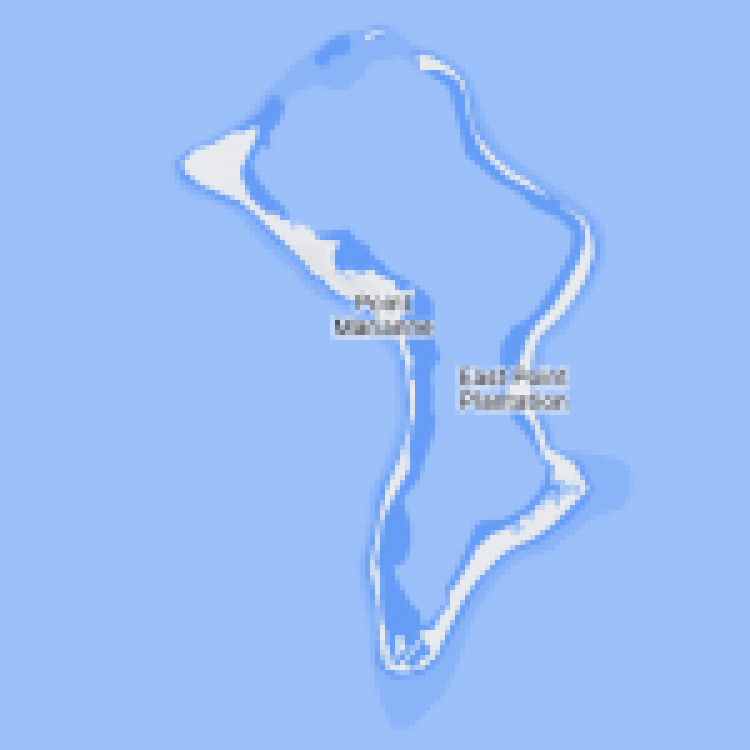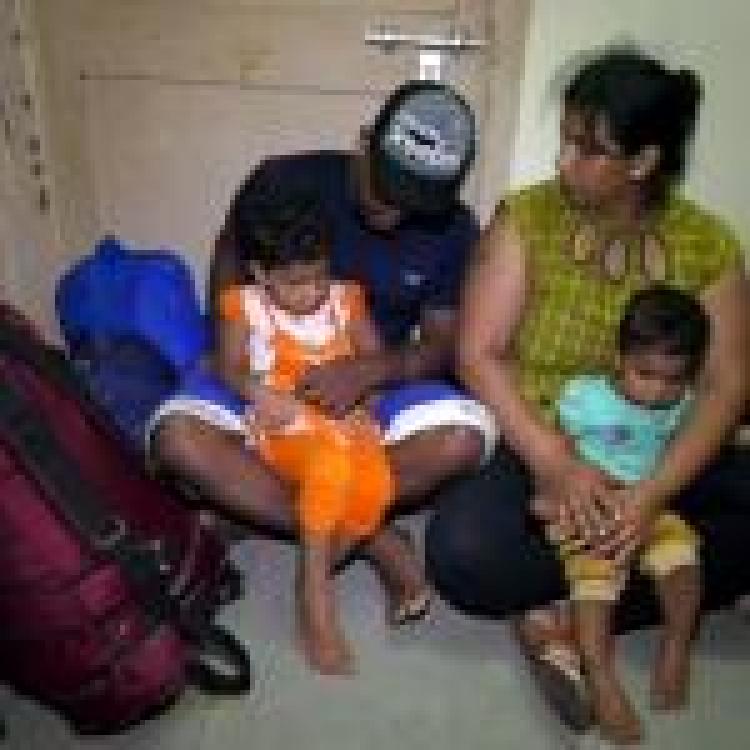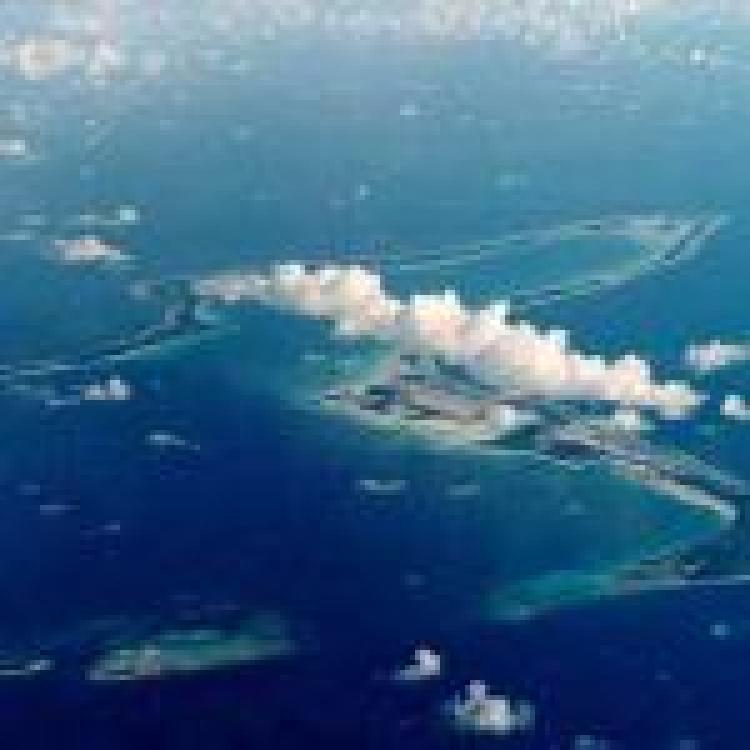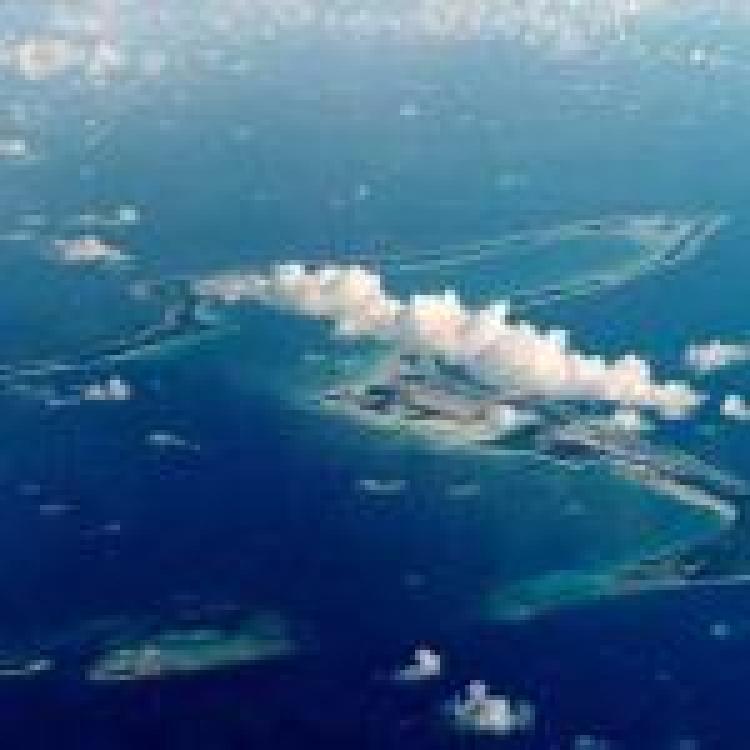![]()
Five Eelam Tamil children stranded on the remote island of Diego Garcia in the Indian Ocean since October 2021 have won a case in the British Supreme Court to be protected from harm in the same way as British children.
The supreme court of the British Indian Ocean Territory (BIOT), has ruled in favour of some of the Tamil asylum seekers on the island including the five children, and found that the key protections in the UK’s Children Act apply to the children on the island according to the latest update published in the Guardian.
Judge Margaret Obi, acting judge of Diego Garcia’s supreme court, rejected the arguments of lawyers for Paul Candler, the island’s commissioner, who said that the Children Act did not apply on Diego Garcia and that its obligations did not bind him. The case included applications for wardship for the children after concerns about their wellbeing and safety on the island.
In a previous case, the court heard evidence from the UNHCR that the conditions the 61 asylum seekers on the island, including 16 children, were living in amounted to arbitrary detention. The refugee agency called for the group to be urgently relocated from the island. The asylum seekers, mainly Tamils who fled from the island of Sri Lanka, arrived on the island in October 2021. They were rescued and taken to Diego Garcia after a boat they were travelling in, hoping to reach Canada to claim asylum, got into difficulty.
Recently a report released by the UN refugee agency has called for an “immediate relocation” of the 61 asylum seekers who have been stranded on the remote island for more than two years and have experienced violence, abuse, and arbitrary detention.
The UNHCR also said the asylum seekers were held in a fenced-in area the size of a football pitch, guarded by G4S staff. They were not allowed to cook for themselves and had been bitten by rats, which were “ubiquitous” on the island and had gnawed holes in their tents. Their movements were severely restricted and they were only recently permitted to leave the camp to go a small beach area alongside the camp at designated times, under close supervision.
The inspection report from the UN refugee agency, UNHCR, marked “confidential” and disclosed only to the Guardian and the BBC by the supreme court of the British Indian Ocean Territory (BIOT), is the first to be carried out since a group of asylum seekers, mainly Tamils who fled Sri Lanka, arrived on the island in October 2021. They were rescued and taken to Diego Garcia after a boat they were travelling in, hoping to reach Canada to claim asylum, got into difficulty.
“It found that the group, mainly asylum seekers with a small number granted refugee status, fall under the effective control of the UK government, have been subjected to conditions of arbitrary detention and should be urgently relocated.” The UNHCR found that the asylum seekers fall under the effective control of the UK government.
In Tuesday’s ruling, the court found that the commissioner must properly safeguard, investigate harm, and promote the welfare of the children on Diego Garcia under the Children Act 1989. In her ruling, Judge Obi said: “In the absence of a specific local law the law of England applies.”
She added: “There cannot be any concept of lesser justice in the BIOT. The same principle applies concerning safeguarding and promoting the welfare of children.” A further hearing relating to the asylum seekers’ claim that they are being unlawfully detained on Diego Garcia will take place on 15 April.
Some of the refugees had fled Sri Lanka following their participation in the Pottuvil to Polikandy (P2P) protest rally in 2021.
Radha, a woman whose husband is on Diego Garcia, said he too was subjected to Sri Lankan state intimidation. ““The army always comes and harasses us,” she said. “One time, they took him in for questioning for three hours and then released him.”
“We’ve suffered a lot. These men who are stranded have suffered so much hardship,” Radha added. “With the men gone, we have no income. I hope they will be brought to a good, safe country and be able to support their families.”




